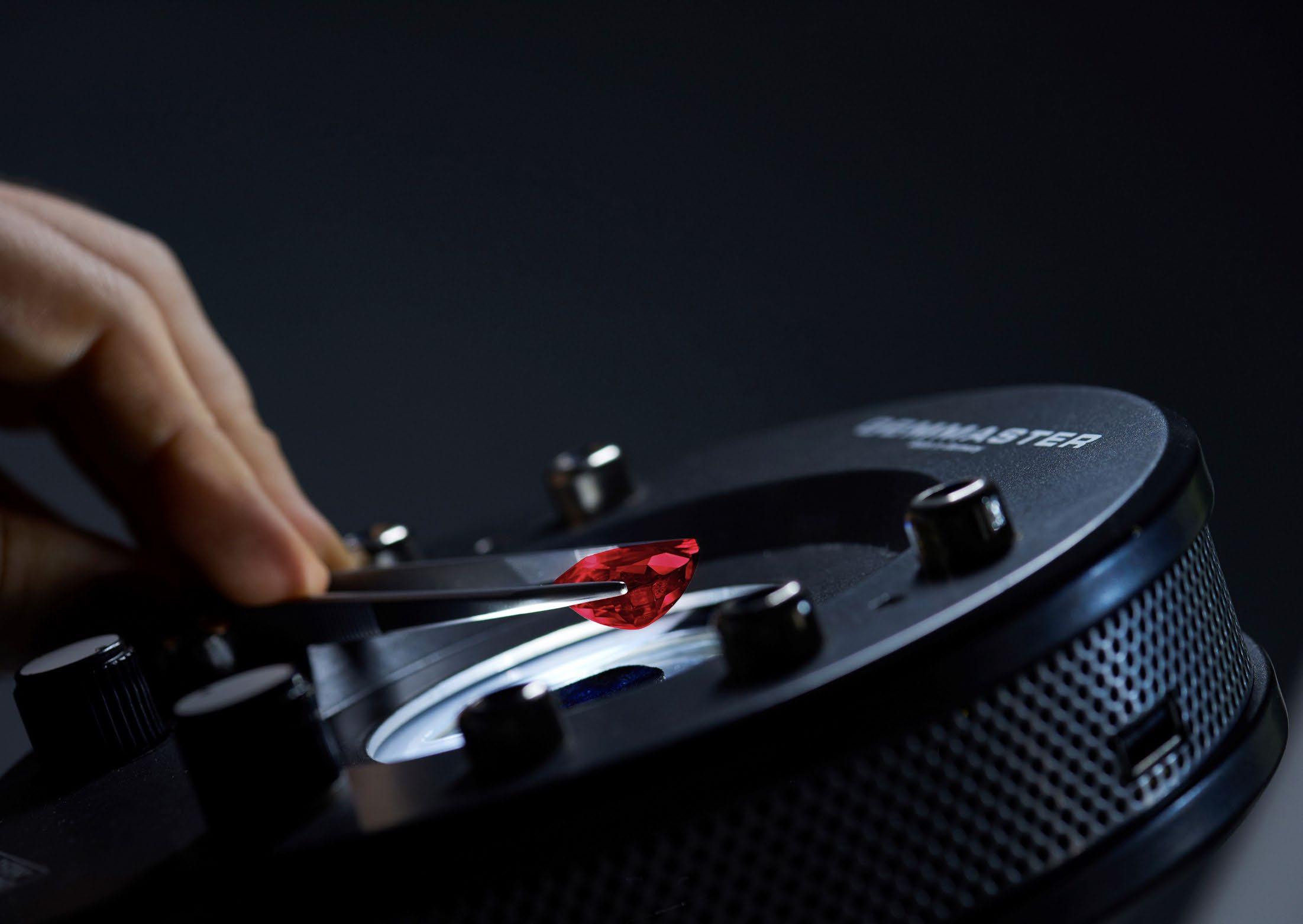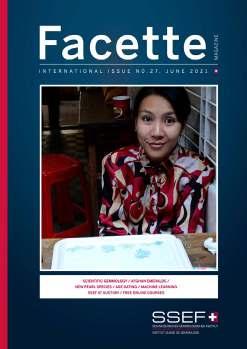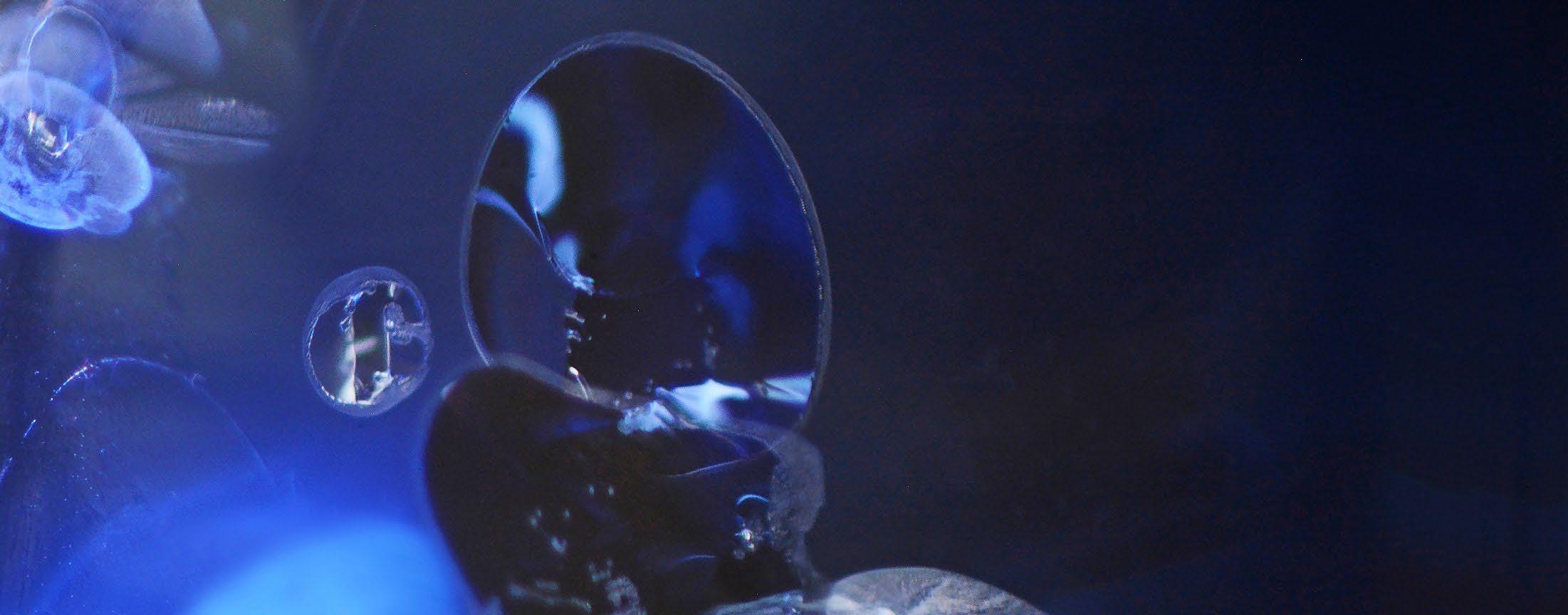

| PHASE TRANSFORMATIONS AS IMPORTANT MARKERS FOR HEAT TREATMENT DETECTION OF CORUNDUM AND OTHER GEMSTONES
Michael S. Krzemnicki1,2, Pierre Lefèvre1, Wei Zhou1
1 Swiss Gemmological Institute SSEF
2 Department of Environmental Sciences, University Basel
Photos and figures © M.S. Krzemnicki and SSEF, except where indicated otherwise

| HEAT TREATMENT OF GEMSTONES

approx.temperaturerangesasbygemmologicalliterature
• Depending on the gemstone, different heating temperatures are required to result in an enhancement.
• In most cases, heat treatment results in a change/shift of colour.
• In certain cases may also reduce turbidity or create other desired (optical) effects.

| DETECTION OF HEATING:
Microscopy

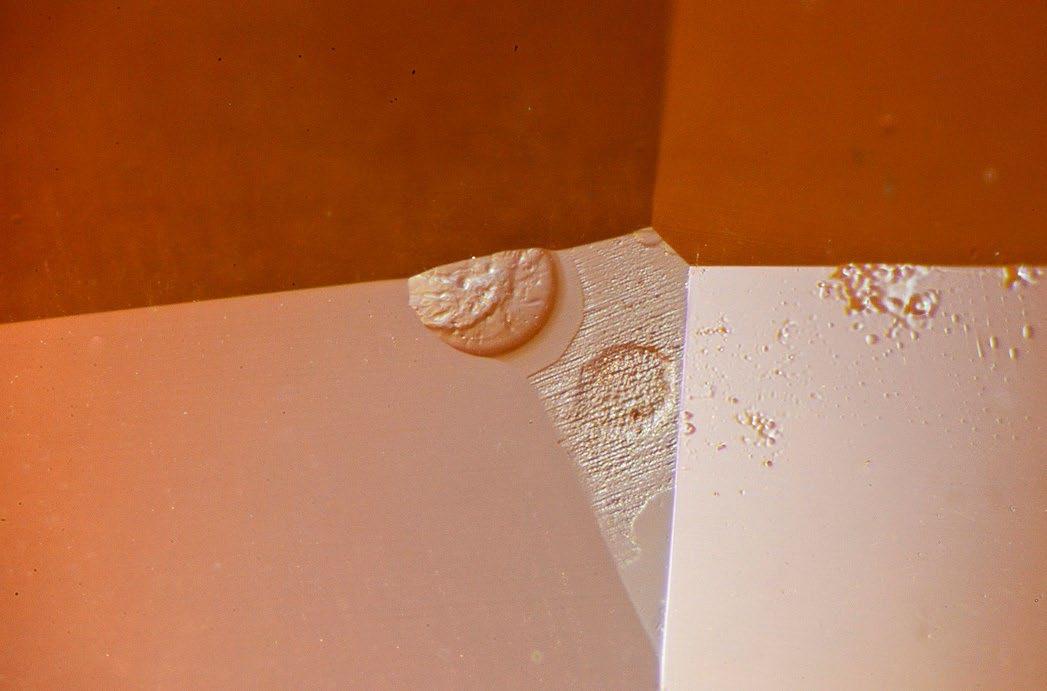
Atoll-structures (discoid extension features) and “burn marks” at the surface are proof of a heat treatment in this orange sapphire.
However, such features indicating heating are often absent, specifically in stones heated at lower temperatures (< 1000 °C)

| DETECTION OF HEATING



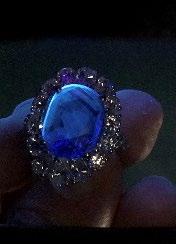
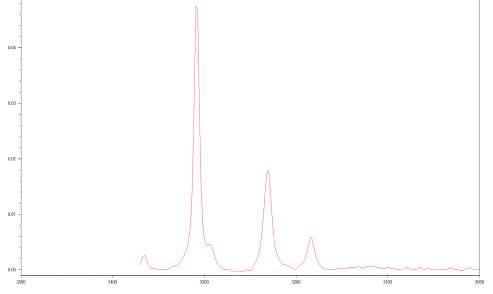
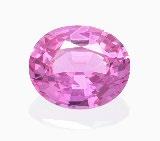
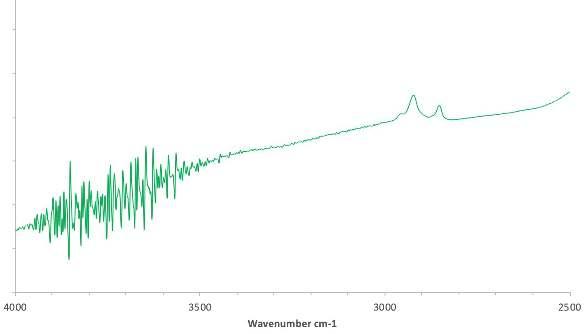
| PHASE TRANSFORMATIONS
Classic examples:
Diaspore (α-AlOOH) and Goethite (α-FeOOH)
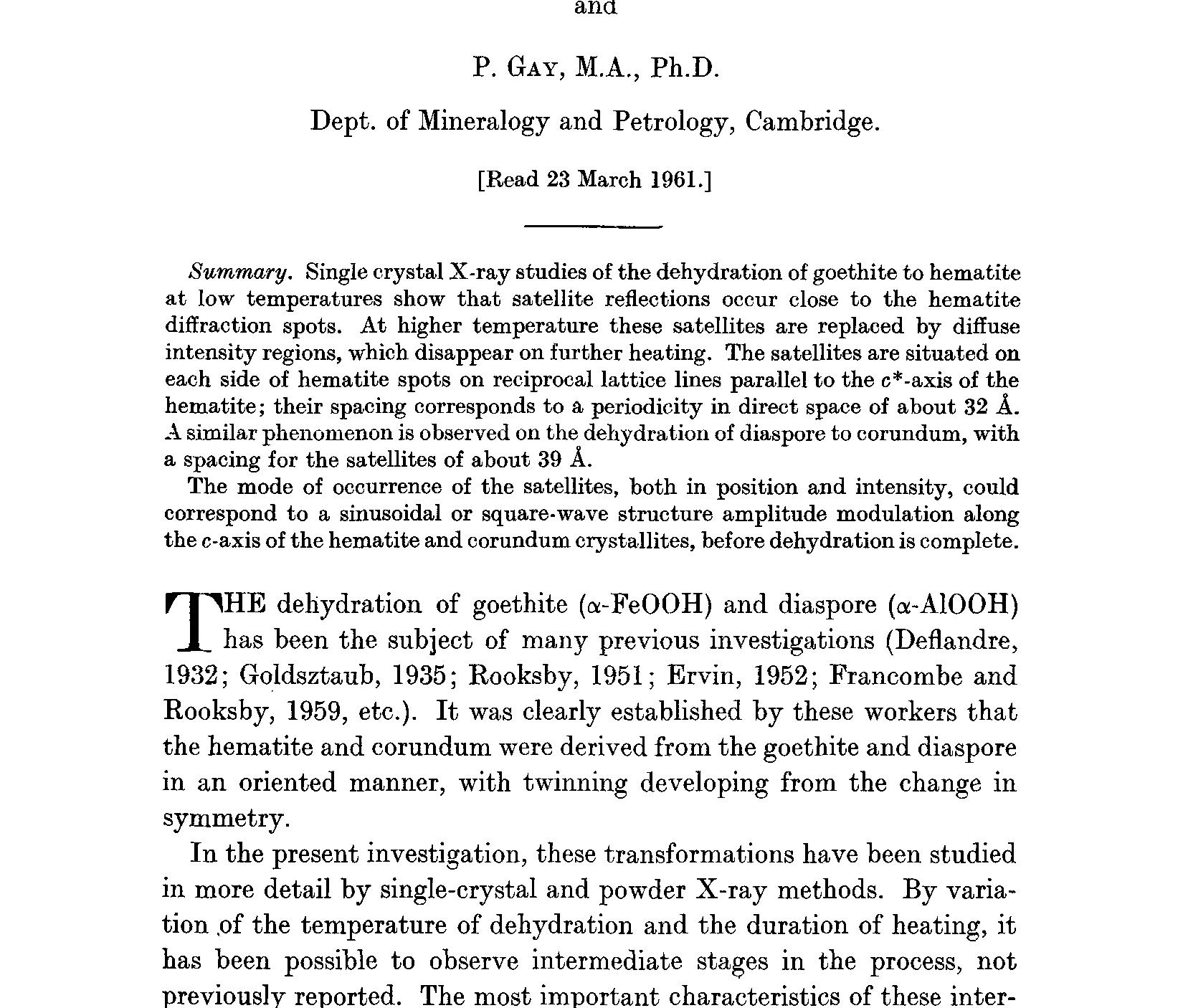
Dehydration of diaspore and goethite is known and h many decades (Deflandre, 1932; Goldsztaub, 1935; Rooksby 1952; Francombe and Rooksby, 1959, etc).


| PHASE TRANSFORMATIONS
Dehydration of diaspore to corundum:
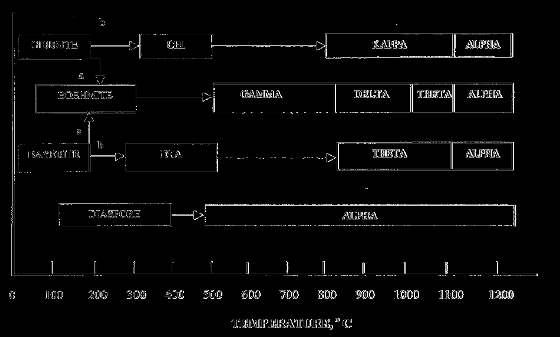
De Faria & Gay P. 1963: 400 °C (heated 20 days); 550 °C (heated ~20 minutes)
Iwai et al. 1973: 550 °C (heated 1 hour)
Carim et al. 1997: above 400 °C (138 h)
Annealing in air: direct and more rapid than in vacuum!
Frost et al. 1999: 500 to 530 °C over small temperature range!
Dehydration of goethite to hematite:
De Faria & Gay P. 1963: 300 °C (heated 19 h); 351 °C (heated ~20 minutes)
Pomiès et al. 1998: 250 to 270 °C
Ruan et al. 2002: 250 to 300 °C
de Faria & Lopes 2007: 300 °C (regardless if 1 or 40 hours)
however rather large bandwidths (lower crystallinity)
Wells et al. 2006: 250 to 300 °C
Al-substituted goethite at slightly higher temperatures

| PHASE TRANSFORMATIONS
Gemmological literature:
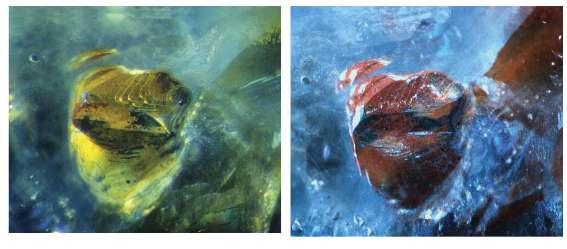
Koivula J.I. 1987: Goethite inclusion alteration during the heat conversion of amethyst to citrine. TheAustralian Gemmologist , Vol. 16, No. 7, pp. 271–272.
Kammerling R.C. & Koivula J.I., 1989. Thermal alteration of Inclusions in “rutilated” topaz. Gems&Gemology , 25, 3, 165-167. http://dx.doi.org/10.5741/GEMS.25.3.165
Koivula J.I., 2013. Useful visual clue indicating corundum heat treatment. Gems&Gemology , 49, 3, 160-161. http://dx.doi.org/10.5741/GEMS.49.3.160
Sripoonjan et al. 2016: Phase transformation of epigenetic iron staining: In dication of low-Temperature heat treatment in Mozambique ruby. JoG, 35 (2), 156-161.

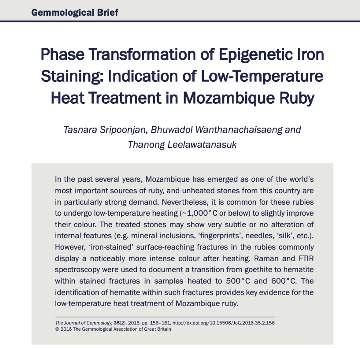
Sripoonjan et al. 2016
from Koivula 2013
| HEATING EXPERIMENT
Heating stage Linkam TS 1200
- Coupled with Raman system for in-situ measurements
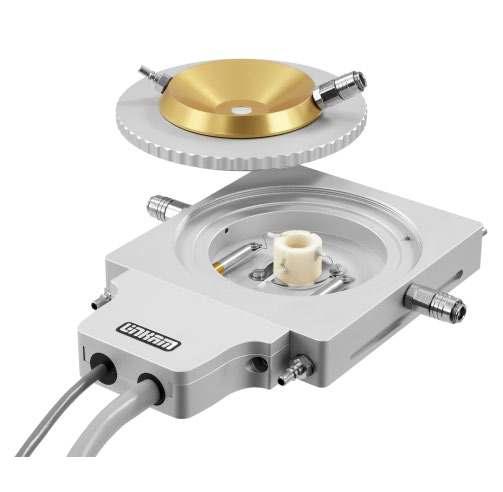
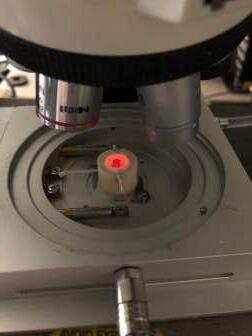
Step-wise heating, Tmax per step kept for 4 minutes only
Electric muffle furnace
Nabotherm LHT 18
- Heating similar to gem trade
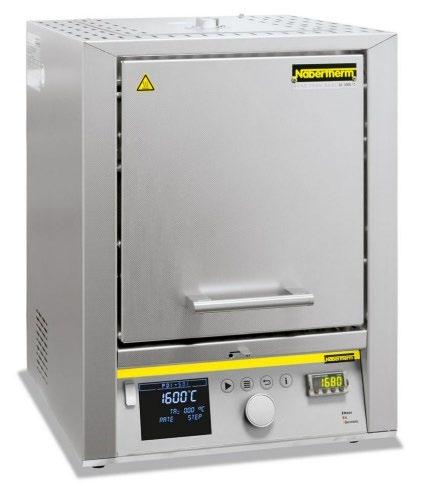
Step-wise heating, Tmax per step kept for 1 hour
Heating in air, step-by-step heating, Raman spectra only after cooling down

| HEATING EXPERIMENT





Important: none of the corundum samples showed any change of colour after our heating experiments reaching a maximum of 1000 °C.

| RAMAN SPECTRA OF PHASES
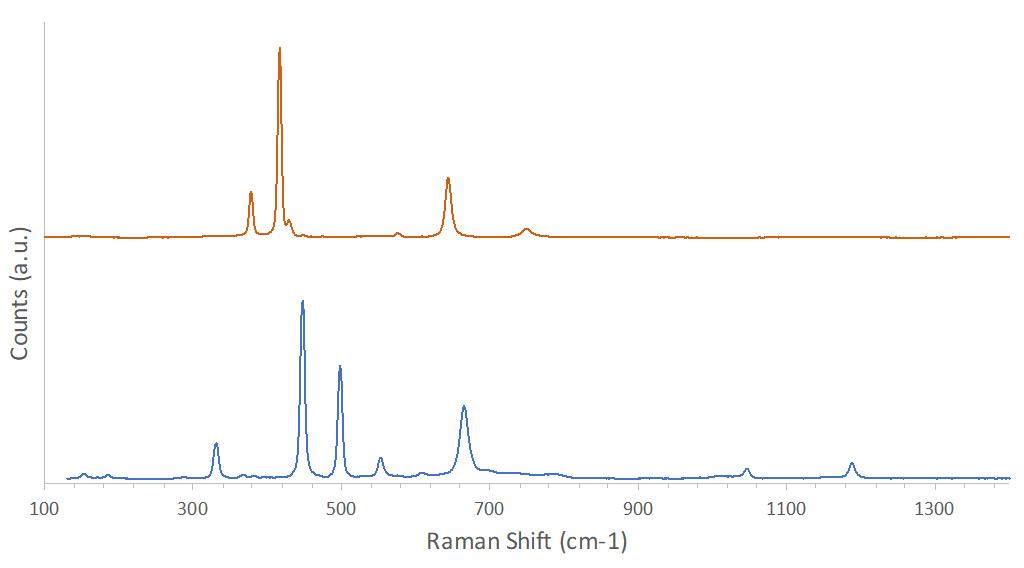
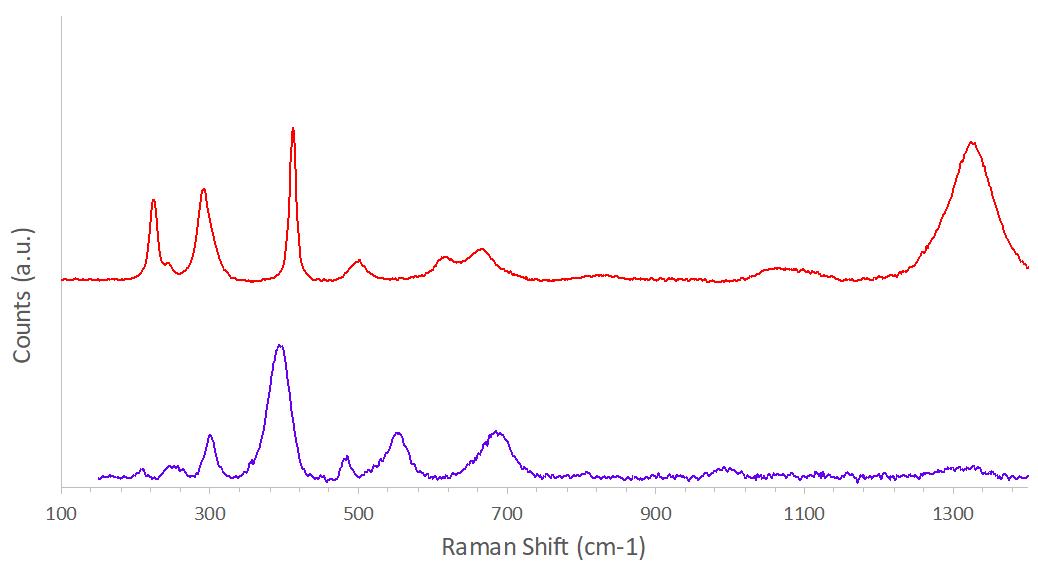
Corundum reference
Diaspore reference
Hematite reference
Goethite reference

| DIASPORE TO CORUNDUM
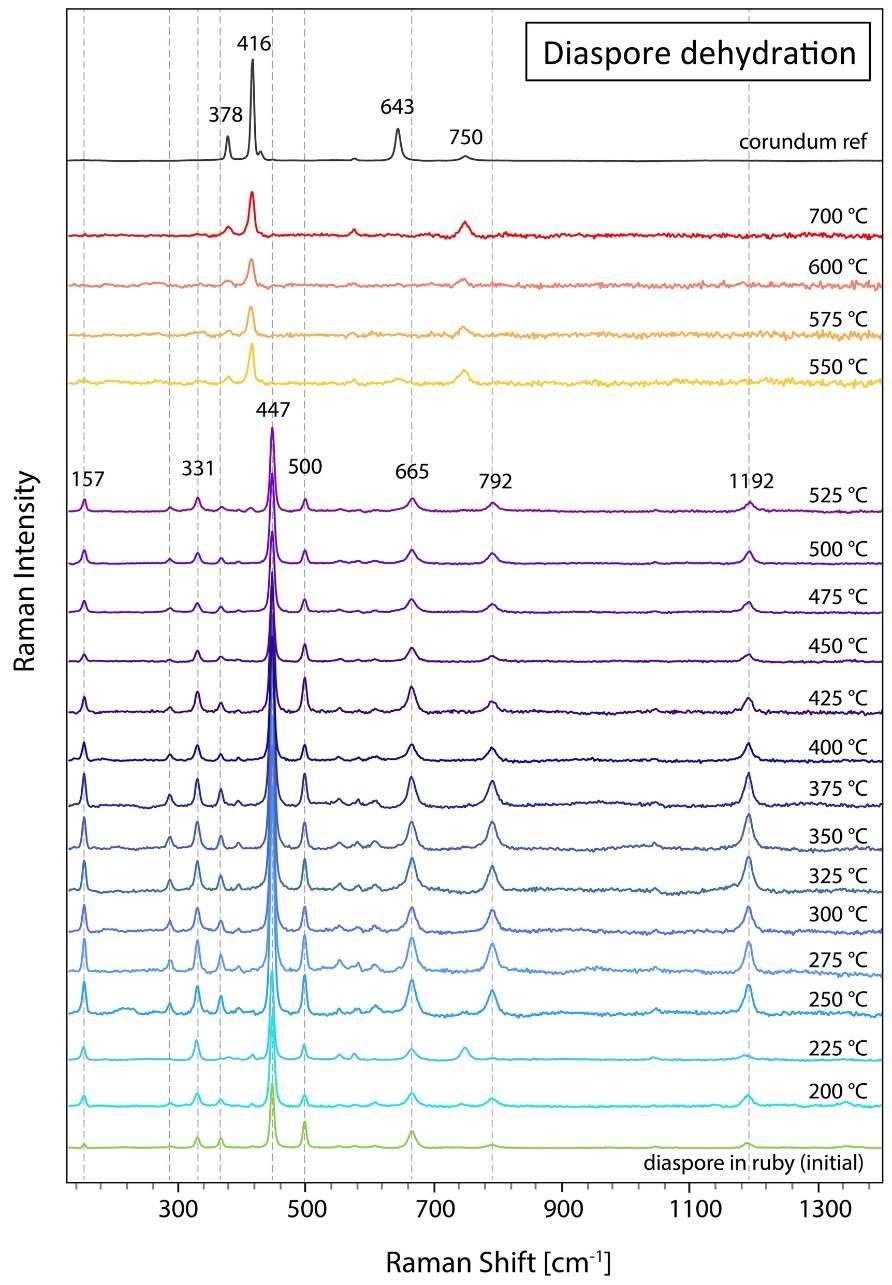
dotted vertical lines: main diaspore peaks

Sample 120993_6
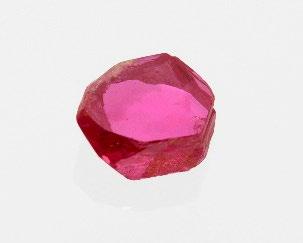
Diaspore in Burmese ruby (Mogok)
Experiment setup: Linkam heating stage
Phase transformation
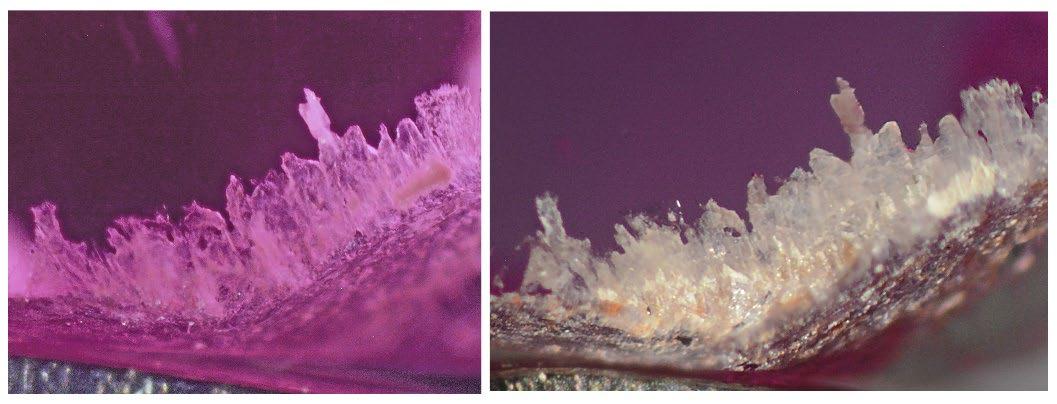
Diaspore in ruby (image width 2mm). before after dehydration
| DIASPORE TO CORUNDUM

dotted vertical lines: main diaspore peaks
Sample 106424_21
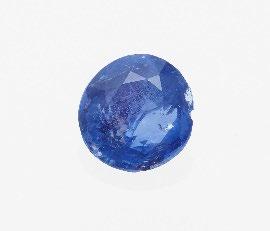
Diaspore in Burmese sapphire (Mogok)
Experiment setup: Linkam heating stage
Phase transformation

Diaspore in fluid inclusion in sapphire (approx. 10 µm).

| DIASPORE TO CORUNDUM
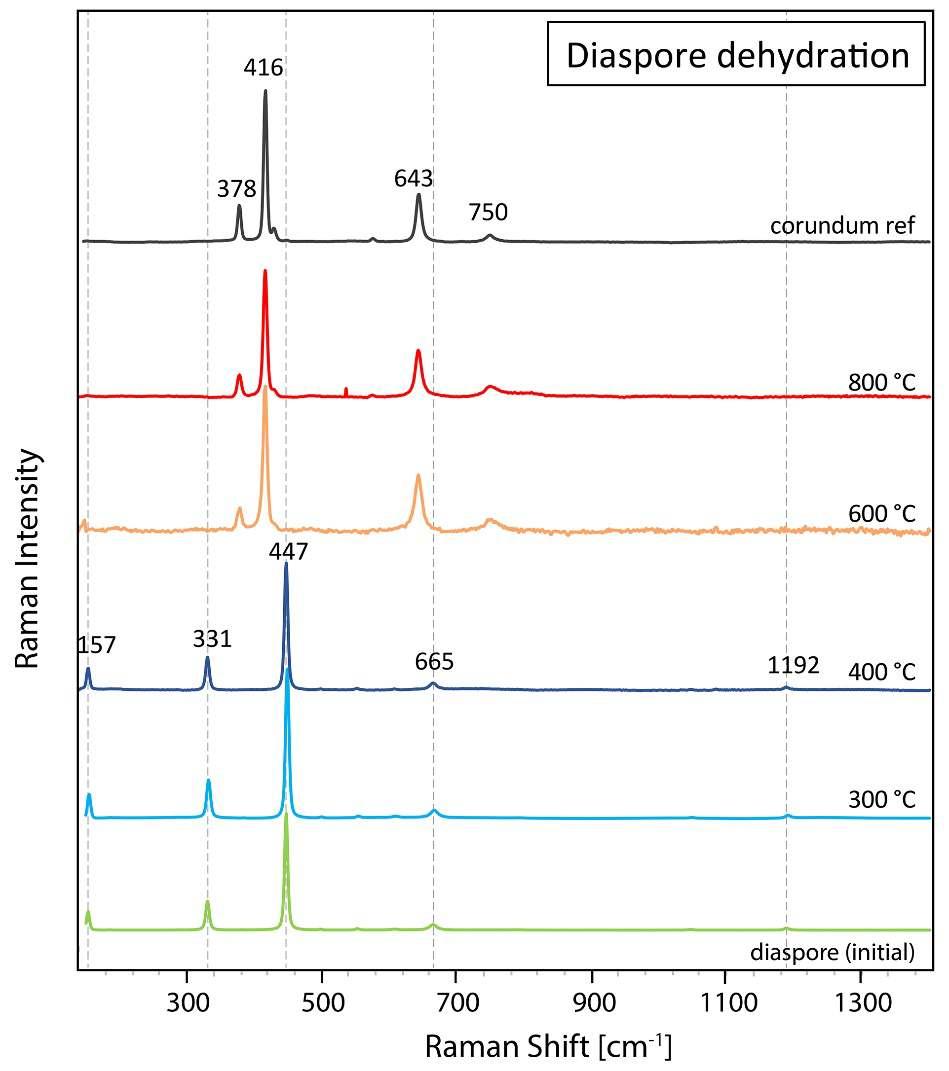
dotted vertical lines: main diaspore peaks


Sample 97003
Diaspore from Muğla Province, Turkey
Phase transformation
Experiment setup: Electric muffle furnace (Nabotherm) before after dehydration
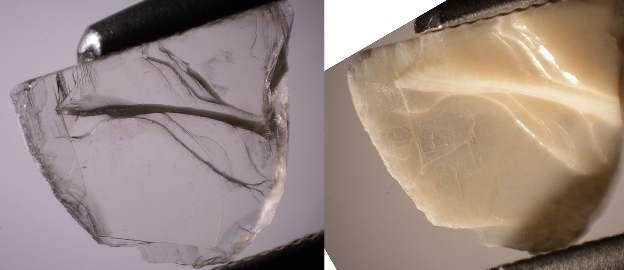
| GOETHITE TO HEMATITE
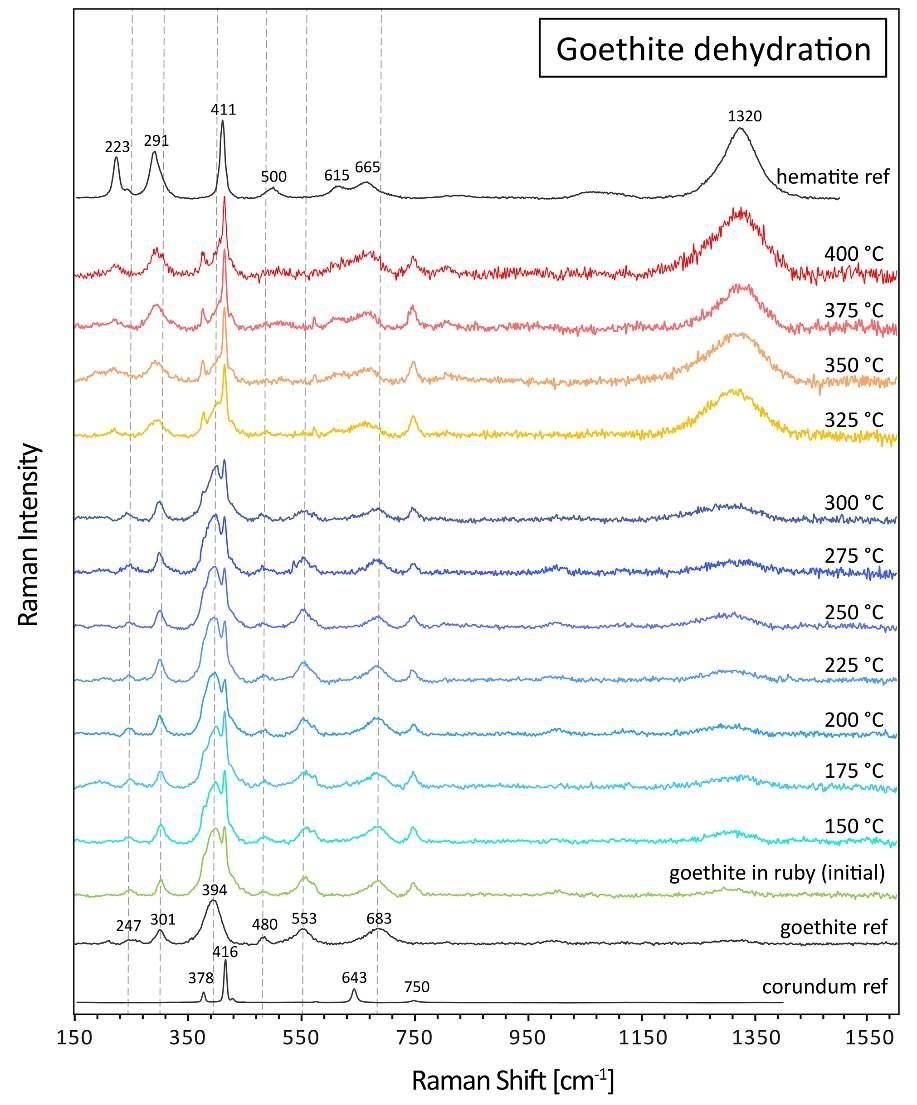
dotted vertical lines: main goethite peaks

Sample 85933_C3

Goethite in Mozambique ruby
Experiment setup: Linkam heating stage
Phase transformation
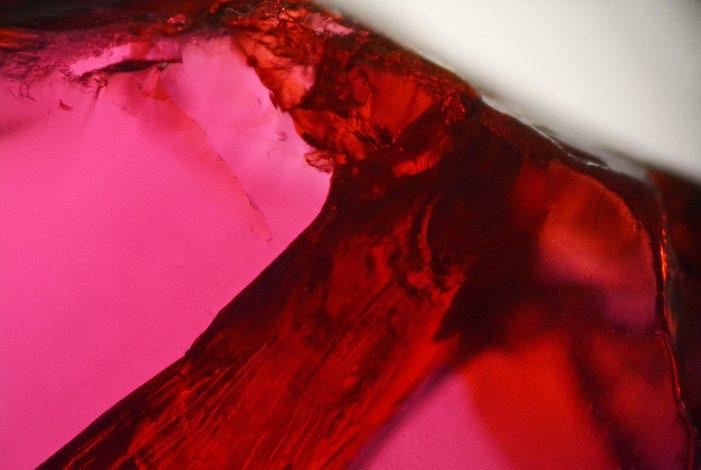
in fissure in ruby
Goethite
| GOETHITE TO HEMATITE

dotted vertical lines: main goethite peaks



| RESULTS OF HEATING EXPERIMENTS
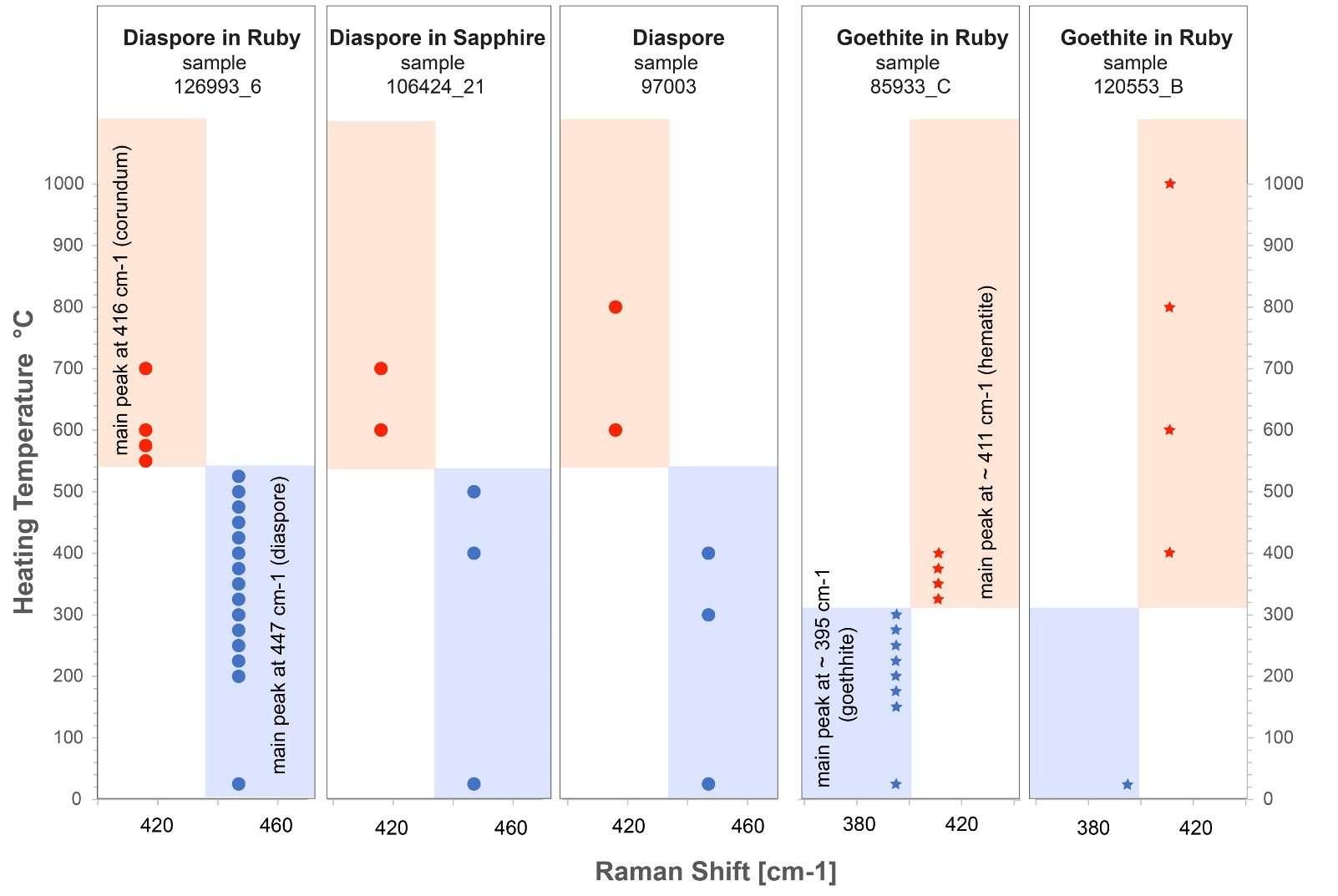
Regardless of size and position of the inclusion, the phase transitions (dehydration) of the diaspore and goethite can be observed in in all samples in their specific temperature range (diaspore about 525 °C; goethite about 325 °C)

| REAL CASES

Sri Lanka
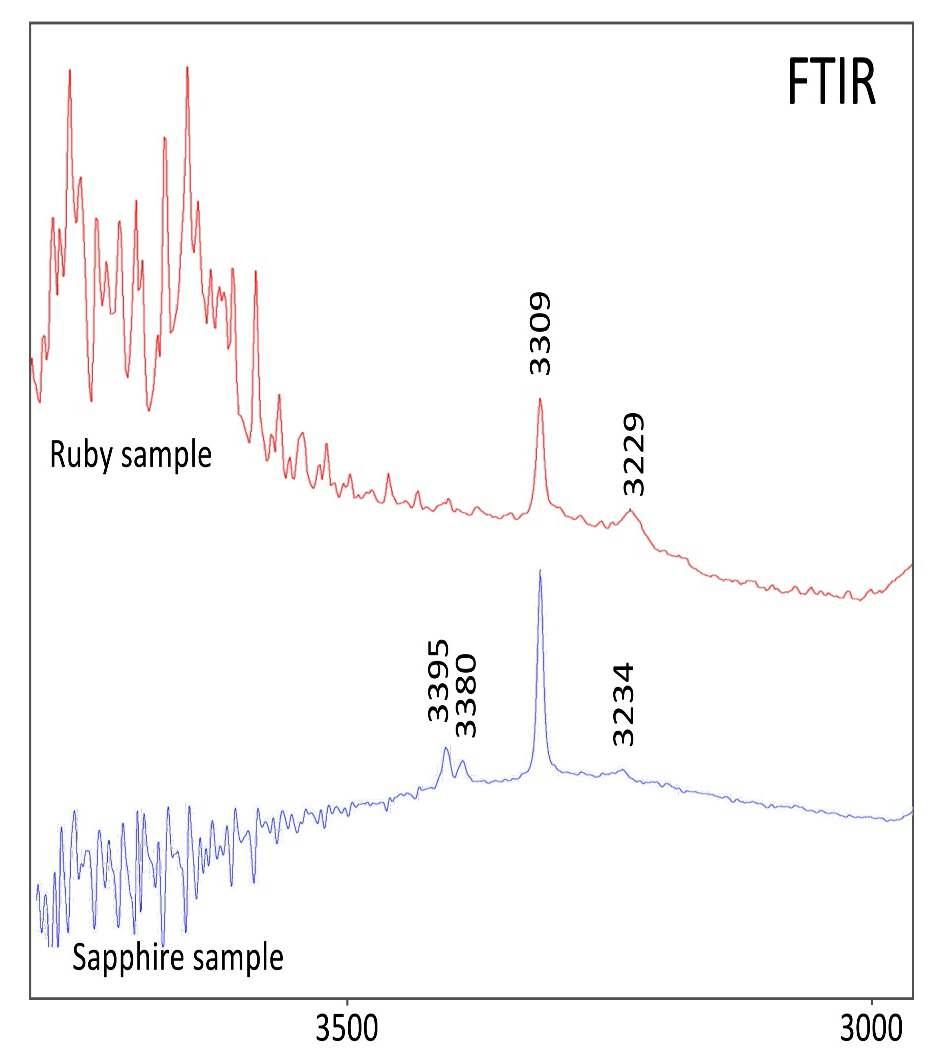
FTIR can be tricky, the peaks at 3229 and 3234 are not identical with the peak at 3232 cm-1 commonly related to heating !
Corundum with similar FTIR spectra have already been identified as heated! Mozambique

| REAL CASES


Estrela de Fura 55.22 ct
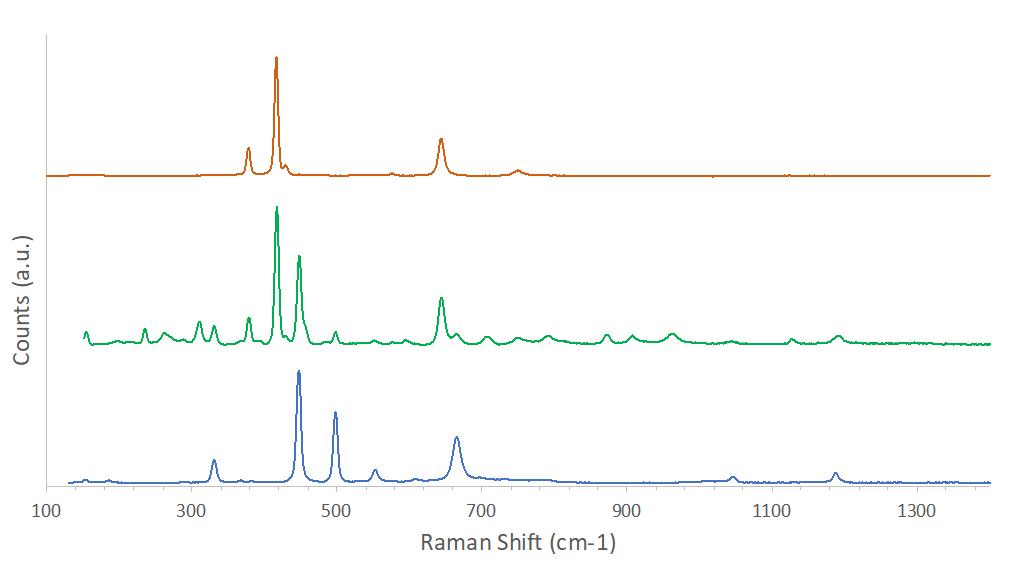
Diaspore detected in fluid inclusion !
Sells at auction Sotheby’s auction June 2023 for record $34.8 million.
ref from Sotheby’s International
Diaspore in Estrela de Fura ruby
Diaspore ref
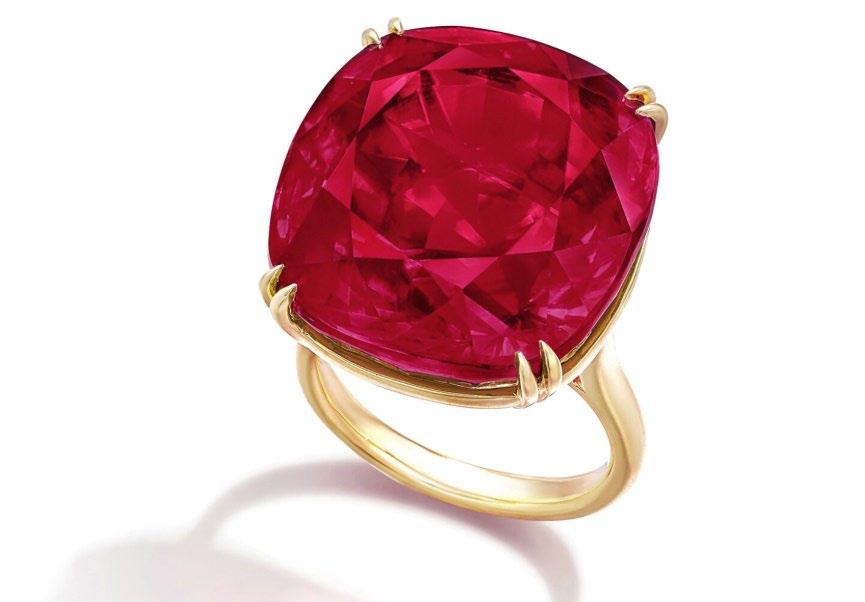

Corundum
| REAL CASES
Purple Chalcedony from Ethiopia:
Heating Experiment
• 30 minutes for ramping up
• 120 minutes at 500 °C
• 60 minutes cooling down
• Heating in air

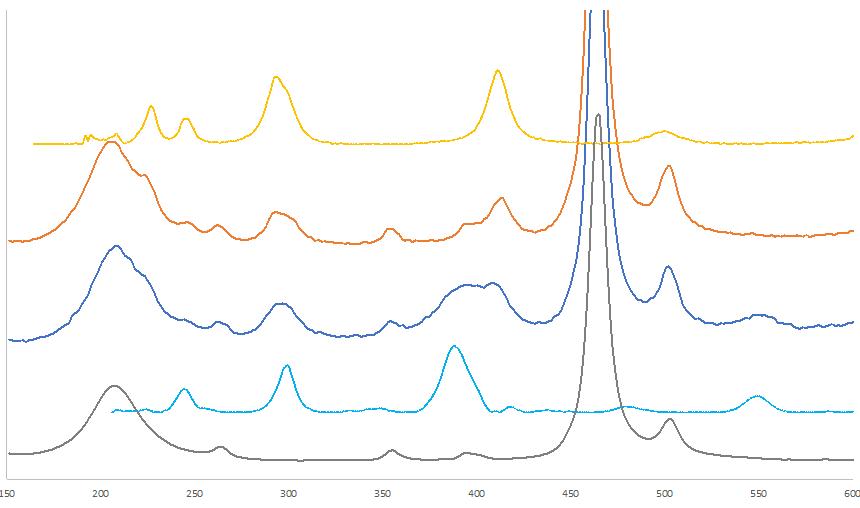
hematite ref
chalcedony after heating
chalcedony before heating
goethite ref
chalcedony ref
Goethite present in this chalcedony transforms to hematite as a result of heating. Some hematite already present before heating!

• Diaspore and goethite are oxyhydroxides which dehydrate to anhydrous oxides when heated.
• Our experiments confirm phase transformation temperatures as reported in literature (goethite to hematite at ~325 °C; diaspore to corundum at ~ 550 °C).
• Phase transformation occurs in small temperature range, thus resulting in a quasi immediate switch in the Raman spectrum.
• Phase transformation cannot be stopped or shifted to higher temperatures, and affects all diaspore and goethite at the same moment.
• The presence of diaspore and/or goethite is a clear indication, that a corundum is not heated (either by low-T heating > 800 °C), even in cases when FTIR may reveal peaks which could be (mis)interpreted as related to heating or no information whether a stone is heated or not.
• The absence of diaspore or the presence of hematite is not enough to call a stone heated.
• Applicable on all kind of gemstones, as long as diaspore or goethite are present.

